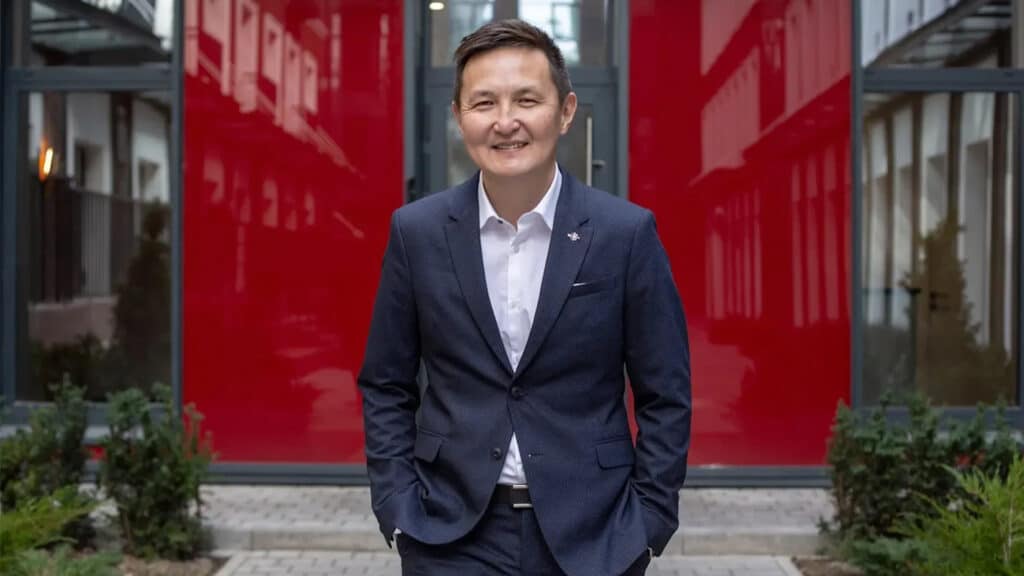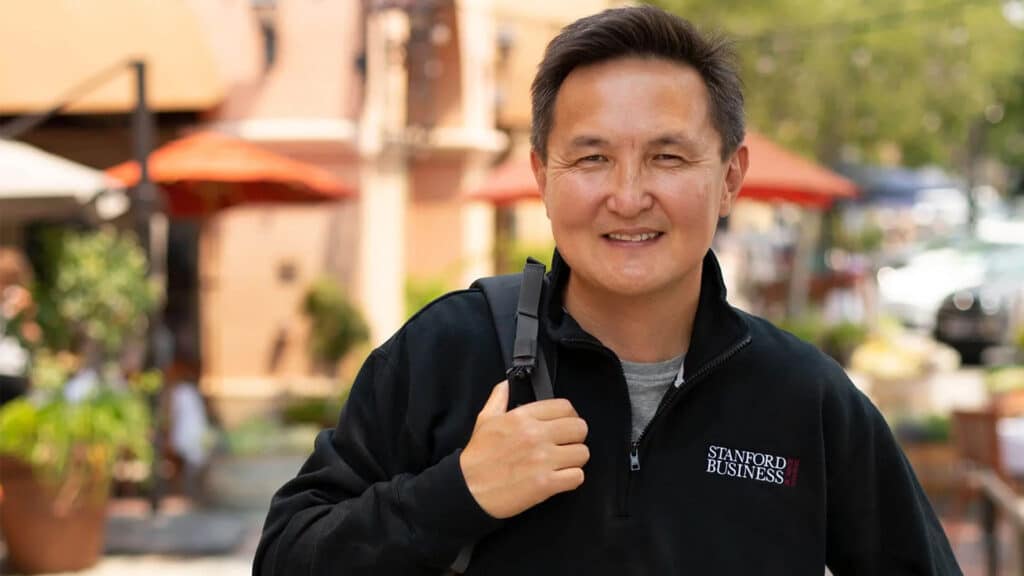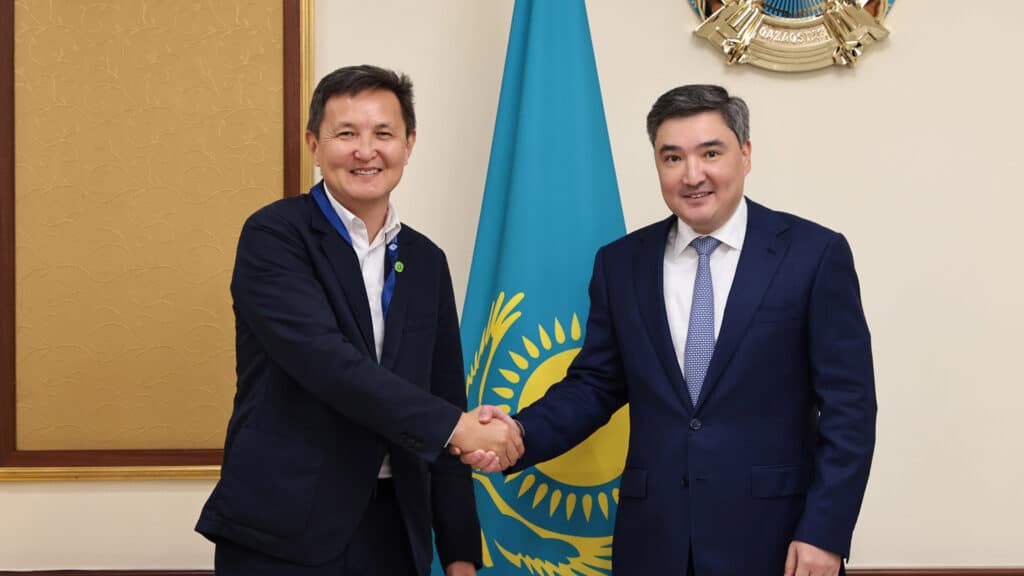The man behind Kazakhstan’s first “unicorn.” Who is Arsen Tomsky?

Multimillionaire, Forbes Kazakhstan rating newcomer and former Russian citizen — this is how one may describe Arsen Tomsky, the founder of international ride-hailing service inDrive. Thanks to this business, Tomsky possesses a fortune of $920 million. Initially established in Yakutia, Tomsky’s IT company evolved into a unicorn and was later relocated to Kazakhstan. Today, InDrive invests in Kazakhstani startups and spearheads non-profit initiatives to fight injustice.
Profile:
- Arsen Tomsky: entrepreneur, programmer;
- Founder, CEO and shareholder of InDrive (InDriver until 2022);
- Born on Nov. 20, 1973, in the city of Yakutsk, the Republic of Sakha, a republic within the Russian Federation (also referred to as Yakutia);
- Studied at the Riga Aviation Institute in the Programming Department but didn’t complete the course. Later, Tomsky was enrolled in the North-Eastern Federal University in Yakutia, where he studied mathematics. In 2021, he completed the Stanford Executive Program;
- Previously married. Tomsky is the father of two daughters;
- He has been living in Almaty, Kazakhstan, since 2022;
- In May 2024, Tomsky was ranked 10th among the richest people in Kazakhstan;
- In October 2024, was ranked 18th among the most influential people in Kazakhstan.
How InDrive emerged as a unicorn
Tomsky founded InDrive in 2012 in Yakutia. The ride-hailing service originated from the Community of Independent Drivers, a group on the popular Russian social network Vk.com. This project served as an «inspiring prototype,» allowing both drivers and passengers to agree on their own terms and conditions. Later, Tomsky sold the group but continued to develop the company. He also sold Ykt.ru, a popular online platform in Yakutia that he had created in 1999, allocating approximately $5 million from his private assets to fund the initial development of the InDrive mobile app.
InDrive was launched in Kazakhstan in 2014. As Tomsky detailed in his book «inDriver from Siberia to Silicon Valley,» the company had secured leadership in the country’s passenger transportation in 2017. In 2021, three major American investors injected $150 million into the startup, valuing InDrive at $1.23 billion. This valuation elevated the startup to unicorn status, surpassing the $1 billion threshold.

According to Tomsky, InDrive’s annual revenue rose 4.9-fold between January 2021 and January 2024. Moreover, in April 2024, one of the American investment funds that had supported the startup in 2021 invested another $150 million in the company. InDrive quickly repaid the funds to its investors. Today, InDrive’s services are available in 779 cities across 46 states.
In 2022, after Russia launched its full-scale invasion of Ukraine, Tomsky relocated InDrive’s headquarters from Yakutsk to Almaty. The enterprise’s core personnel have been working in Kazakhstan since spring 2022. In December 2023, he renounced his Russian citizenship and accepted Kazakhstan’s nationality by invitation from the country’s cabinet. His new citizenship allowed Forbes Kazakhstan to include Tomsky in its richest people list. Although Tomsky «gifted» Kazakhstan its first unicorn, the company’s journey in Kazakhstan wasn’t always easy. In 2016, the entrepreneur faced pressure from local «mid-level bureaucrats» who wanted him either to sell the company or leave the market.

The challenges InDrive faced in Kazakhstan
As Tomsky wrote in his autobiography «Inner Drive: From Underdog to Global Company,» attacks on his business in Kazakhstan began in 2016. He even had a meeting in Moscow with someone who, according to him, «claimed to be a representative of certain influential figures in Kazakhstan.» This individual demanded InDrive share half of its revenue with these figures, threatening that the company «wouldn’t be able to operate in their country» if he refused. Around the same time, other «mid-level bureaucrats from the Transportation Ministry in Astana» contacted Tomsky with similar demands and threats. InDrive refused to strike any deals with these parties.
«Of course, I said that I wouldn’t give 50%, 15% or even 5% — screw them. I added that we would complain to the Prosecutor General’s Office. We had established a web portal in Yakutsk that became a leading independent media focused on combatting corruption, and we were supposed to stay away from giving bribes,» Tomsky told Forbes Kazakhstan in an interview.
Such an intractability led to a complete ban of all InDrive’s IP addresses in Kazakhstan on Apr. 17, 2016. Previously, the application had accounted for 70% of the company’s total revenue, but following the ban, the Kazakhstani division reported zero income as the app stopped working. Tomsky and his team strenuously resisted the ban. They created new IP addresses to circumvent the blocked ones and instructed Kazakhstani users on how to use VPNs to regain access to the application via SMS messages.
In his book «inDriver from Siberia to Silicon Valley,» Tomsky detailed how his team had to resort to unconventional methods to continue operations. For instance, they identified the exact location of the building in the government quarter in Astana where the bans were being executed. The company’s programmers then targeted the smartphones of those responsible for blacklisting. As a result, when officials thought they had disabled InDrive’s functionality by banning its IP addresses, the application remained accessible to other users.
Eventually, Tomsky’s team hired lawyers and defended its right to exist in Kazakhstan two years after the initial ban.
Other activities of the entrepreneur
Tomsky is actively engaged in social projects that promote education, technology, creative industries and sports. In the late 1990s and early 2000s, he initiated efforts to establish an IT park at the university in Yakutsk where he studied. However, according to Tomsky, the institution failed to fulfill its obligations and the park was never built.
Another notable non-profit project launched by Tomsky in Yakutia is StartTeam, which supports talented children in pursuing education abroad.

Following the relocation to Kazakhstan, Tomsky initiated a set of non-profit projects under InDrive’s umbrella, including:
- The Beginit leadership program;
- The Aurora Tech Award for women;
- The Underdog Tech Award for startup founders;
- The Alternativa Film Award;
- The Supernovas project featuring free football courses for children;
- The YourPace project, dedicated to providing an inclusive running experience.
InDrive claims that its core mission is to combat injustice. The company has already established nine sustainable development goals similar to UN principles, one of which is Climate Action. One notable initiative is the Almaty Air Initiative (AAI) fund, co-founded by Tomsky and fellow Kazakhstani entrepreneur Kairat Akhmetov. The fund aims to address ecological vulnerabilities in Almaty and propose solutions to tackle the city’s smog problem. Tomsky allocated $600,000 to the project, while Akhmetov contributed $200,000. Additionally, in collaboration with Kazakhstani director Kanat Beisekeyev, InDrive produced a documentary titled «Almaty: Is It OK to Live with Smog?»
Last summer, Tomsky expressed his plans to establish a non-commercial university in Kazakhstan for future leaders. It is expected to house four programs: IT, media, arts and policymaking. The university has yet to be established, though.
Earlier this month, Tomsky became an investor in Ryadom (meaning «nearby» in English), a Kazakhstani meal delivery service that is part of Choco Holding, owned by Ramil Mukhoryapov.

